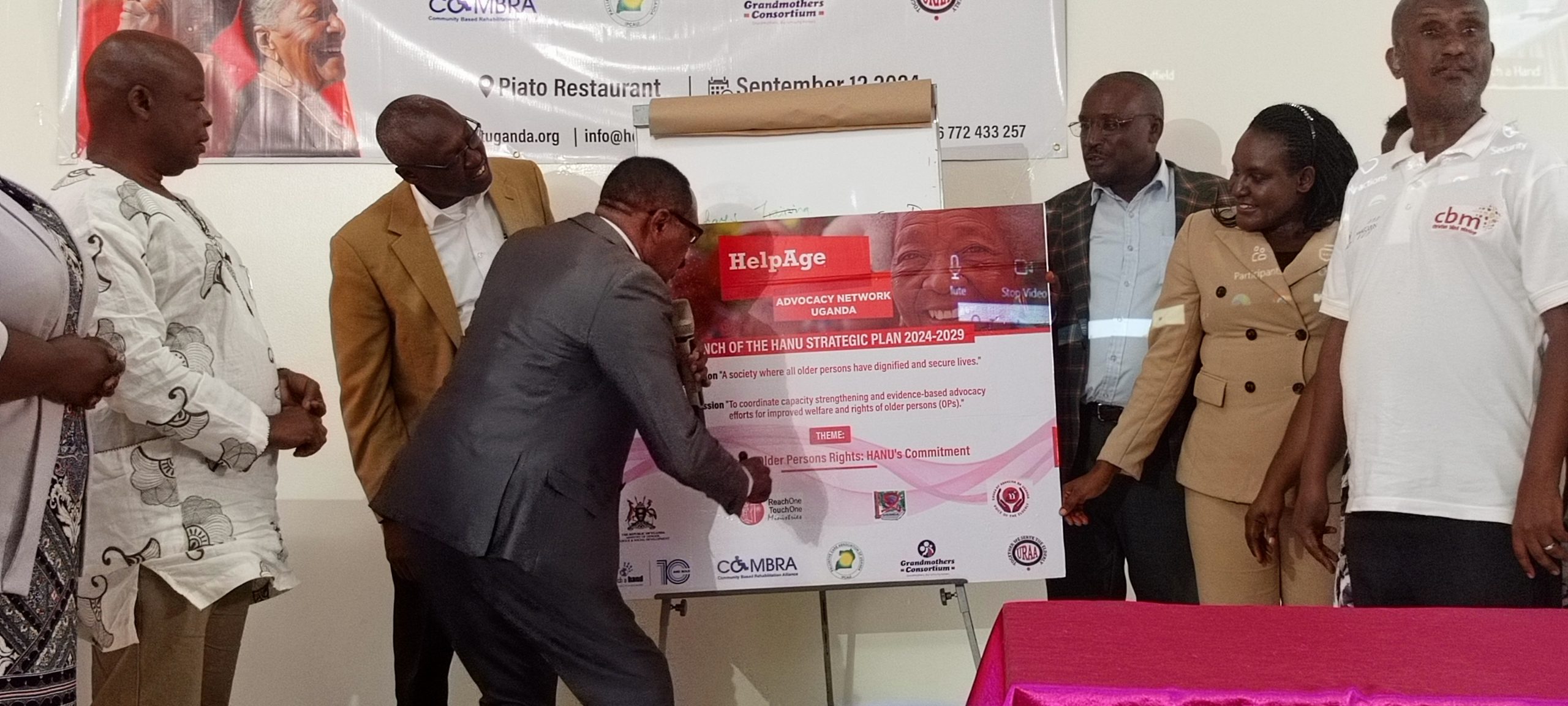News
HANU Unveils Ambitious 5-Year Strategic Plan To Transform Elderly Care In Uganda

By Gad Masereka
HelpAge Advocacy Network Uganda (HANU) has launched a new strategic plan for 2024-2029 aimed at improving services for the elderly in Uganda. HANU, an independent network formed by eight Ugandan organizations, seeks to promote the rights and well-being of older people in the country.
This move follows the closure of the HelpAge International country office, and HANU now represents key age-care organizations, including Reach One Touch One Ministries Uganda (ROTOM), Health Nest Uganda (HENU), Uganda Reach the Ages Association (URAA), Grandmothers Consortium (GMC), Palliative Care Association Uganda (PCAU), Reach a Hand Uganda (ROHU), Community Based Rehabilitation Alliance Ltd (COMBRA), and Voice of the Elderly. Each organization within the network offers unique contributions, from healthcare and community rehabilitation to palliative care and support for grandmothers.
HANU Chairperson Arthur Namara Araali noted that the formation of the platform aligns with the government’s preference for a unified network advocating for aging issues. He emphasized that the platform aims to champion age-friendly policies, safeguard the rights of older people, and elevate care standards through research and best practices.
The strategic plan will serve as a roadmap for the network to enhance advocacy and service delivery for the elderly population across Uganda. Col. Patrick Apuuli, the National Coordinator for Older Persons in State House, welcomed the initiative, stressing that the platform would provide a much-needed channel to advocate for the rights of older persons while improving awareness about government programs dedicated to elderly care. He highlighted the importance of disseminating information about the Social Enterprise Grant for Older Persons and the Parish Development Model, where 10% of the funds are allocated to elderly persons. However, Apuuli noted that many older people are unaware of these opportunities and stressed the need for monitoring and advocacy.

In addition to the strategic plan launch, John Orach, Chairperson of the National Network for Older Persons of Uganda, outlined the significant challenges facing the elderly in Uganda. Speaking at a recent event, Orach, who has been an advocate for senior citizens for over two decades, emphasized the critical need for better medical infrastructure and income security for older persons. Orach lamented the scarcity of medical professionals specializing in geriatric care, noting that there is only one geriatrician in the entire country.
He also pointed out that many older Ugandans, particularly women who never attended school, lack pensions, further compounding their financial insecurity. Orach called on the government to expand the Senior Citizens Grant and lower the age requirement from 80 to 60 years, thereby allowing more elderly citizens to benefit from the program. He also raised concerns about the growing isolation and depression among older people, who are often left behind as younger generations move to urban areas.
The government’s efforts to address some of these issues have taken shape in the form of financial support programs for elderly Ugandans. A recently introduced initiative aims to empower elderly citizens aged 60-79 by providing grants for income-generating activities. Under this scheme, groups of older persons can receive up to five million shillings each to fund their projects, with the government monitoring the use of funds to ensure sustainable outcomes. Since its launch in 2022, the program has supported over 5,500 elderly Ugandans, and the government aims to expand its reach to 9,000 in the coming years.
Principal gerontologist Patrick Menya emphasized that while the monthly stipend for those aged 80 and above remains at 25,000 shillings, there are ongoing efforts to increase this to 50,000 shillings.
Menya also acknowledged the challenge posed by the national ID registration requirement, which prevents some elderly individuals from accessing the funds, but he assured that efforts are being made to assist those who cannot travel to registration centers.
As HANU begins the implementation of its strategic plan, there is renewed hope that the combined efforts of government and civil society will address the pressing needs of Uganda’s elderly population. Through collaboration and continued advocacy, Uganda’s aging citizens stand to benefit from improved health services, financial security, and social support.


